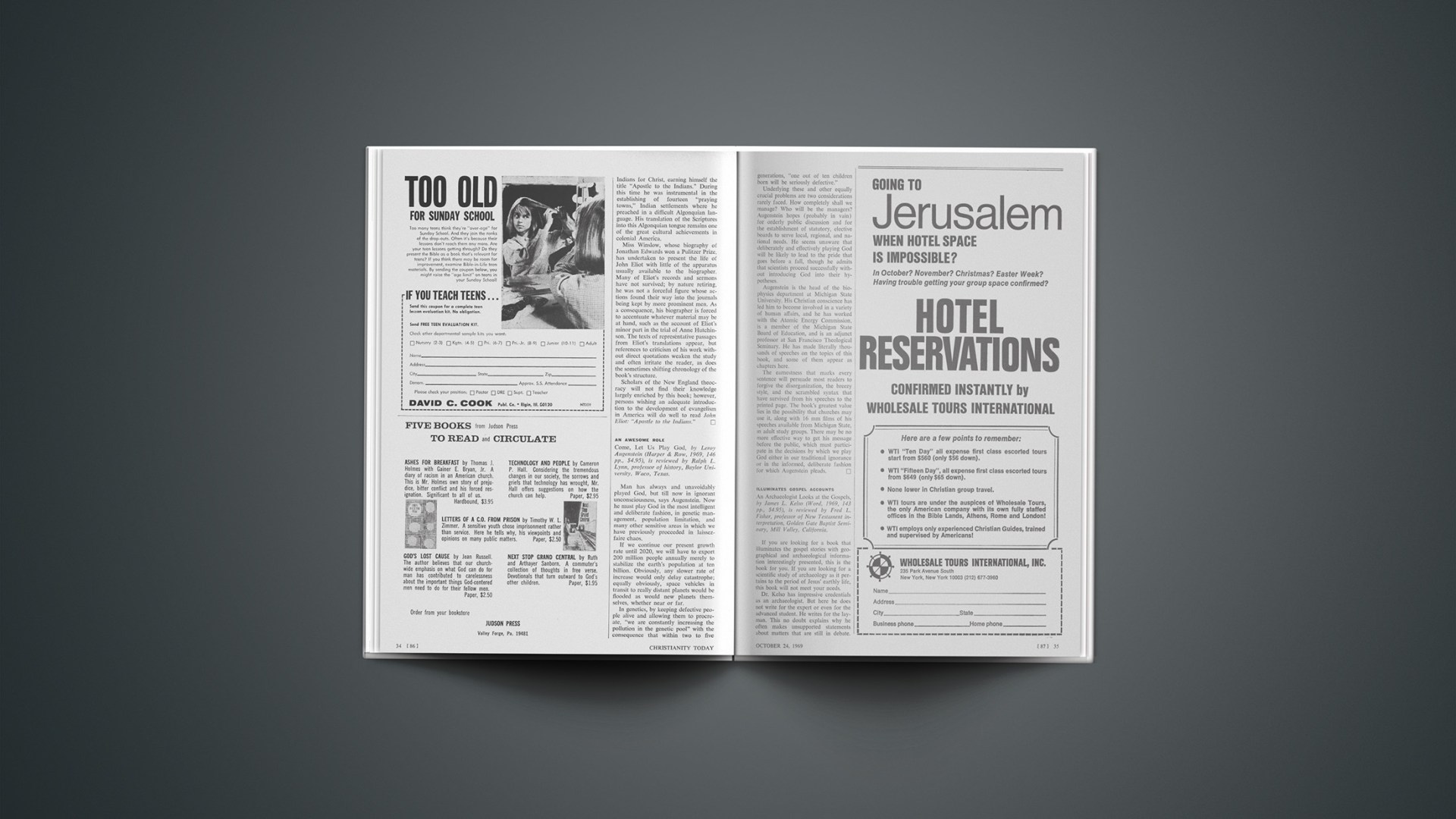Harry Emerson Fosdick is dead at the age of ninety-one. The longtime minister of New York’s Riverside Church, which was built for him by John D. Rockefeller, Jr., was deeply embroiled in the famous fundamentalist-modernist controversy of the twenties. Fosdick outfought, out-maneuvered, and outlived many of the key fundamentalist spokesmen, and declared that the battle against fundamentalism had been won.
In 1922 Fosdick’s sermon entitled “Shall the Fundamentalists Win?” set off the controversy that rocked the old-line denominations of his day. He later declared that “the conflict between liberal and reactionary [he did not call it orthodox] Christianity had long been moving toward a climax.” In his sermon, as he later described it, he “stood in a Presbyterian pulpit and said frankly what the modernist position on some points was—the virgin birth no longer accepted as a historic fact, the literal inerrancy of the Scriptures incredible, the second coming of Christ from the skies outmoded phrasing of hope.”
John Roach Straton of the Calvary Baptist Church in New York rose to the defense of fundamentalism, declaring that Fosdick, a Baptist, was “not only a Baptist bootlegger, but … also a Presbyterian outlaw.… I declare in the name of eternal truth that Dr. Harry Emerson Fosdick is a religious outlaw—he is the Jesse James of the theological world.” Perhaps the greatest opponent of Fosdick was Clarence Edward Macartney, who was swept into the moderatorship of the Presbyterian Church U. S. A. as a result of the struggle. Under Macartney’s leadership conservative forces were able to force Fosdick to retire from the pulpit of the First Presbyterian Church in New York, from which he eventually went to Riverside Church. Of Macartney, Fosdick said, “He was very decent and dignified in his attitude. While his theological position was in my judgment incredible, he was personally fair minded and courteous.…” Fosdick sought to change Macartney’s mind: “Hoping that tolerance might win, [I] tried in a conciliatory way to make him see that … I was endeavoring to maintain the timeless values and truths of the gospel. It was, however, a vain attempt.”
Nearly fifty years after Fosdick’s historic sermon, it can be said that a memorable victory was won. Most of the large denominations no longer adhere solidly to orthodox Christianity; they are inclusive and latitudinarian, and heresy trials over matters of theology are anachronistic. But fundamentalism is by no means dead. Nor are the issues of the Scriptures, the virgin birth, and the second coming of Jesus Christ relics of an outmoded age. Millions of people continue to hold what Fosdick chose to repudiate. Those who favor what Fosdick advocated have turned more and more away from the Gospel of personal salvation, while the churches have more and more become instruments of social change divorced from the theological centralities of the New Testament.
Fosdick claimed to have been influenced greatly by Walter Rauschenbusch and by Rufus Jones, the Quaker. During World War I days he wrote The Challenge of the Present Crisis, a book he later described as the only one he wished he had never published. In it he defended war, a position he later repudiated. However, he “never was tempted to any sympathy with communism”—“Stalin was carved off the same piece of meat as Hitler.”
No one has replaced Fosdick in the pantheon of liberal leadership, and probably no one will. The demands of our time call for a different type of leadership, and many of the issues that now claim the allegiance of men are far removed from those that characterized Fosdick’s day.
Fosdick believed in immortality, a view he supported more from human reason than from divine revelation. He now has gone to that other world where all men ultimately will discover whether the beliefs they hold truly reflect the truth and the genius of the Word of God.










